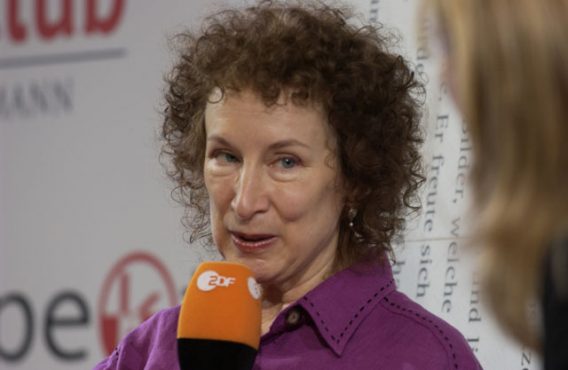Women underrepresented in Nobel Prize in Literature
Every year, the Swedish Academy awards the Nobel Prize in Literature to a writer who, according to the will of Alfred Nobel, “has produced the most outstanding work [of literature] in an ideal direction.” On Thursday Oct. 5, Japanese-born British author Kazuo Ishiguro won the prize: much to his own surprise and bewilderment.
He admitted that he did not even know the prize was going to be awarded on Thursday, and, after hearing rumours that he had won, he initially thought they were a joke. Ishiguro told the Globe and Mail that he had thought Margaret Atwood would win, and even apologized to her, saying he hoped she would soon. These reactions speak to Ishiguro’s humility, grace, and thoughtfulness, all of which are apparent in his writing. His pinpointing of Margaret Atwood among the many deserving would-be-laureates illustrates, whether intentionally or not, a major underrepresentation in the history of the Nobel prize — that of female laureates.

Margaret Atwood, pictured here in 2009, was expected to win the 2017 Nobel Prize in Literature. She was even apologized to by Kazuo Ishiguro: the British author who did win.
Photo by Das Blaue Sofa/Club Bertelsmann via Flickr
Only 14 out of 113 Nobel Prize in Literature laureates have been women. While the gender gap has lessened significantly since the prize was first awarded in 1901, only five women have won in the last two decades — a meagre 25 per cent. This points beyond the limitations of Nobel prize giving, and illuminates a persisting gender gap in the broader literary world, albeit one which any optimist would surely say is getting better all the time. However, the lack of women winning such a prestigious prize has implications for the value we place on literature by women, as well as other underrepresented groups.
Looking beyond the gender gap, one can also criticize the prize for lack of diversity in many other areas. For example, lingual diversity has been relatively poor, with only 25 languages represented (out of several thousand in the world). Laureates writing in English unsurprisingly dominate, with double the number of winners than the second most common language, French. Over half of the languages represented are European. This imbalance leads one to consider ethnic and national diversity as well, although this is not necessarily correlated with language, as Ishiguro demonstrates. He was born in Nagasaki and is ethnically Japanese, but has written only in English. He has, however, cited Japanese language and culture as major influences in his writing. There are, of course, many complex issues to consider regarding diversity in Nobel Prize laureates, and the statistics are only a starting point to the issue. However, one can essentially gather that the supposedly global prize is still overwhelmingly a western male one.
The Nobel Prize in Literature certainly still has its merits and continues to provide immense support to the literary community, despite its shortcomings. In a press release, the Swedish Academy stated that Ishiguro won for his “novels of great emotional force,” through which he “uncovered the abyss beneath our illusory sense of connection with the world.” This statement certainly seems to be true of Ishiguro and his work, which often deals with issues of memory, identity, and the melancholic beauty of existence. His voice and convictions are unique and important in the world today, regardless of any limitations in the realm of literary prizes. His winning of the Nobel Prize, and the honour associated with it, is completely deserved.
So why is it important that women and people of color win this award?
The Nobel Prize in Literature is not only one of the most prestigious literary honours, but it also offers one of the largest monetary prizes to its laureates. This year the prize amount was nine million Swedish kronor — the equivalent of almost 1.4 million Canadian dollars.
Monetary prizes can have an incredible impact on an author’s career post-win, allowing them complete freedom to work on whatever writing project they desire. It follows then, that when women or other underrepresented groups are so infrequently awarded the Nobel Prize in Literature, they are also denied the creative freedom that comes with winning it.
Furthermore, the prestige associated with the Nobel prize guarantees greatly increased readership, even for already immensely popular writers. It’s essentially a pre-approved stamp from a brand that everyone trusts and respects.
By having so few women represented in the list of past Nobel Prize laureates, the world is receiving a message that their voices matter less. This not only has implications for women in the global writing community, but also the reading community in general.
Reading has enormous potential beyond entertainment, including the possibility of expanding one’s worldview and capacity for empathy. This does not happen simply by the act of reading, but through exposure to a wide assortment of diverse voices. When half of the world’s population is underrepresented by an authority such as the Swedish Academy, the effects ripple throughout the world, creating a kind of feedback loop of what, and who, is considered valuable in literature, and, by extension, in life.
For these reasons, I would hope there will be more diversity in the voices and ideas represented by the Nobel and other literary prizes.







